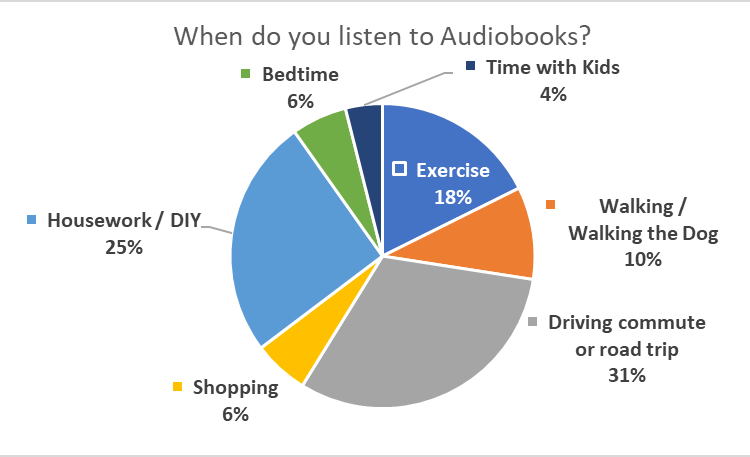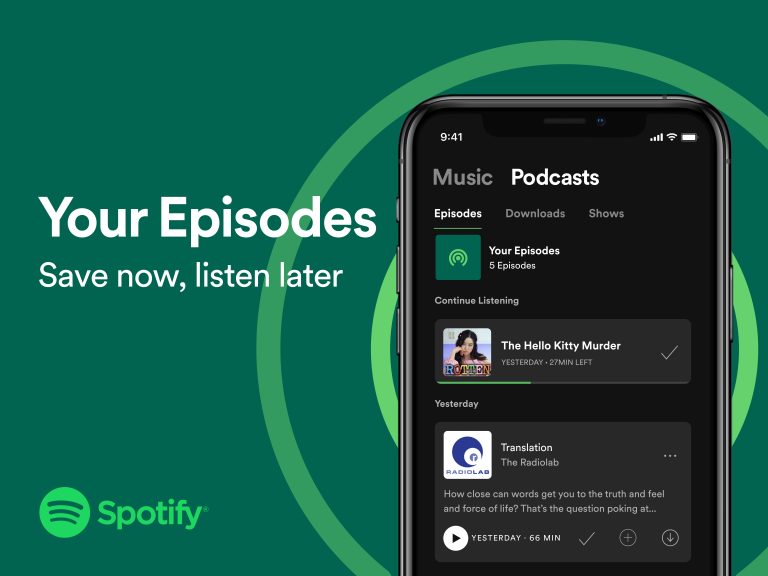Do Audiobooks Use A Lot Of Data?
If you’re a book lover like me, you’ve probably wondered about the impact of audiobooks on your data usage. Do audiobooks use a lot of data? It’s a valid question, especially for those of us who rely on our mobile devices to enjoy our favorite stories on the go. Well, fear not! In this article, we’ll dive into the world of audiobooks and explore just how much data they consume, so you can listen worry-free and stay within your data limits.
Nowadays, with the rise of streaming services and the ever-growing popularity of audiobooks, it’s essential to know how much data these audio gems consume. After all, nobody likes unexpected data charges! So, whether you’re commuting, working out, or simply relaxing at home, you can sit back, relax, and let the words flow into your ears without constantly checking your data usage. Let’s unravel the mystery of audiobook data consumption together and put your mind at ease.

Do Audiobooks Use a Lot of Data?
Audiobooks have become increasingly popular in recent years, offering a convenient and immersive way to enjoy books. However, one common concern among users is whether audiobooks consume a significant amount of data. In this article, we will explore the data usage of audiobooks and provide you with a comprehensive understanding of how much data they typically require.
How Do Audiobooks Work?
Before delving into data usage, it’s important to understand how audiobooks work. Unlike traditional reading, where you visually consume the text on a page, audiobooks allow you to listen to the content being read aloud. This is typically done using digital audio files that can be accessed through various platforms and devices, such as smartphones, tablets, or dedicated audiobook players.
When you play an audiobook, the audio file is streamed or downloaded to your device, allowing you to listen to the narration at your convenience. Streaming refers to playing the audio in real-time over an internet connection, while downloading involves saving the audio file onto your device for offline playback.
Data Usage for Streaming Audiobooks
Streaming audiobooks can be a convenient option, as it allows you to access a vast library of titles without taking up storage space on your device. However, it’s important to consider the data usage associated with streaming, especially if you have limited data allowance or are using a mobile network.
The amount of data consumed while streaming an audiobook depends on several factors, including the audio quality and the length of the book. Higher audio quality settings, such as those offering better sound clarity, may result in larger file sizes and increased data usage. On the other hand, lower quality settings may reduce data consumption but could compromise the audio experience.
Data Usage Comparison for Different Quality Settings
To give you a better understanding, let’s compare the approximate data usage for streaming audiobooks at different quality settings:
1. Low Quality: Streaming at low quality settings, typically around 64 kbps, can consume approximately 1-2 megabytes (MB) of data per minute. This is a suitable option if you have limited data or are primarily concerned about data consumption.
2. Medium Quality: Streaming at medium quality settings, which are commonly around 96-128 kbps, may use around 2-3 MB of data per minute. This setting strikes a balance between audio quality and data usage, providing a decent listening experience.
3. High Quality: Streaming at high quality settings, such as 192 kbps or above, can result in data consumption of around 4-6 MB per minute. This setting offers superior audio quality but consumes more data.
It’s worth noting that these figures are approximate and can vary depending on the specific audiobook platform and the compression algorithms used. Additionally, data usage may also be influenced by other factors, such as network conditions and buffering.
Benefits of Streaming Audiobooks
Despite the data considerations, streaming audiobooks offer several benefits. Firstly, they provide instant access to a vast selection of titles, eliminating the need to download and store large audio files on your device. This can be particularly advantageous if you have limited storage capacity.
Secondly, streaming allows for seamless transitions between audiobooks. You can easily switch between different titles without the need to wait for downloads or worry about storage limitations. This flexibility enhances the overall user experience and makes it easier to explore new authors or genres.
Lastly, streaming platforms often provide additional features, such as bookmarking, progress tracking, and personalized recommendations. These features enhance the audiobook experience and allow you to customize your listening preferences.
Data Usage for Downloading Audiobooks
Downloading audiobooks offers an alternative option for those concerned about data usage. When you download an audiobook, the audio file is saved directly onto your device, allowing you to access and listen to it offline, without relying on an internet connection.
The data usage associated with downloading an audiobook is typically limited to the initial download itself. Once the audio file is saved on your device, you can listen to it without any further data consumption. This can be advantageous if you have limited or no internet access, such as during travel or in areas with poor network coverage.
However, it’s important to consider the storage implications of downloading audiobooks. Audio files can take up a significant amount of space, particularly for longer books or those with higher audio quality settings. Ensure that you have sufficient storage capacity on your device before downloading multiple audiobooks.
Benefits of Downloading Audiobooks
Downloading audiobooks offers several benefits worth considering. Firstly, it provides offline access to your favorite titles, allowing you to enjoy them even without an internet connection. This is particularly useful during flights, road trips, or other situations where internet access may be limited or unavailable.
Secondly, downloaded audiobooks reduce your reliance on data networks, making them a suitable option for users with limited data allowances or those avoiding potential data overage charges. By downloading the files in advance, you can enjoy uninterrupted listening without worrying about data consumption.
Lastly, downloaded audiobooks offer greater flexibility in terms of device compatibility. Once the audio files are saved on your device, you can transfer them to different devices or platforms without the need for an active internet connection. This allows you to listen to your favorite books across multiple devices, such as smartphones, tablets, or dedicated audiobook players.
To summarize, the data usage of audiobooks depends on whether you choose to stream or download the content. Streaming audiobooks can consume varying amounts of data depending on the quality settings, while downloading audiobooks requires data only during the initial download. Consider your data allowance, storage capacity, and listening preferences to determine the most suitable option for you. Whether you choose to stream or download, audiobooks offer a convenient and immersive way to enjoy literature on the go.
Key Takeaways: Do audiobooks use a lot of data?
- Audiobooks use data when streaming or downloading, but the amount of data consumed depends on the audio quality and length of the book.
- Listening to audiobooks offline after downloading them can help save on data usage.
- Lower quality audio formats like standard or compressed formats use less data compared to higher quality formats like high definition or lossless.
- Downloading audiobooks over Wi-Fi instead of using cellular data can help avoid exceeding data limits.
- If data usage is a concern, it’s recommended to check the settings of the audiobook app to adjust the audio quality and download settings accordingly.
Frequently Asked Questions
1. How much data does streaming an audiobook consume?
Streaming audiobooks typically consume around 28-64 kilobits per second (kbps) of data. This means that for every hour of streaming, you can expect to use approximately 12-28 megabytes (MB) of data. However, the actual data usage may vary depending on the quality of the audio file and the streaming service you are using.
If you are concerned about data usage, some audiobook apps allow you to adjust the streaming quality to lower levels, which can help reduce the amount of data consumed. Additionally, downloading audiobooks for offline listening can be a more data-friendly option, as you only need to download the file once and can listen to it without using any additional data.
2. Do audiobooks use more data than music streaming?
Audiobooks generally use less data than music streaming. While the exact data usage can vary depending on factors such as audio quality and length of the audiobook, on average, audiobooks consume less data per hour compared to streaming music.
This is because audiobooks are typically spoken-word content and do not require as high of a bitrate as music, which consists of complex audio arrangements. As a result, audiobooks can be a more data-efficient choice for those with limited data plans.
3. Can I listen to audiobooks without using data?
Yes, you can listen to audiobooks without using data by downloading them for offline listening. Many audiobook apps offer the option to download audiobooks to your device, allowing you to listen to them without an internet connection.
Downloading audiobooks not only saves data but also provides the convenience of listening to your favorite books even when you don’t have access to Wi-Fi or a cellular network. Simply download the audiobook before you go offline, and you’ll be able to enjoy your listening experience without worrying about data usage.
4. How can I minimize data usage when streaming audiobooks?
If you want to minimize data usage when streaming audiobooks, there are a few strategies you can employ:
– Adjust the streaming quality: Many audiobook apps allow you to choose the streaming quality, ranging from low to high. Opting for a lower quality setting can help reduce data consumption.
– Connect to Wi-Fi: Whenever possible, connect to a Wi-Fi network to stream audiobooks. Wi-Fi networks typically offer unlimited data or higher data caps, allowing you to listen to audiobooks without worrying about data usage.
– Download for offline listening: As mentioned earlier, downloading audiobooks for offline listening eliminates the need for data consumption while streaming. Take advantage of this feature if you have limited data or are in an area with poor network coverage.
5. Are audiobooks a good choice for those with limited data plans?
Audiobooks can be a great choice for those with limited data plans. Compared to video streaming or even music streaming, audiobooks consume relatively less data. By downloading audiobooks for offline listening or adjusting the streaming quality, you can enjoy your favorite books without exceeding your data limit.
Additionally, audiobooks provide a valuable form of entertainment and learning that can be enjoyed while commuting, exercising, or relaxing. With careful data management, audiobooks can be a data-friendly option for individuals who want to make the most of their limited data plans.
Reading vs Listening to Audiobooks (What science says about it)
Final Summary: Do Audiobooks Use a Lot of Data?
So, after diving into the world of audiobooks and data usage, we can draw a conclusion that will leave you feeling informed and ready to embark on your next literary audio adventure. Audiobooks do use data, but the amount can vary depending on various factors such as the quality of the audio, the length of the book, and the platform you’re using. However, in general, audiobooks use significantly less data compared to streaming videos or music.
If you’re worried about exceeding your data limit, fret not! Most audiobook platforms allow you to download the books for offline listening, so you can enjoy your favorite stories without consuming your precious data. This is a great option for those who prefer to listen on the go, where Wi-Fi might not be readily available.
So, whether you’re a data-conscious listener or an avid bookworm, audiobooks are a fantastic way to immerse yourself in captivating stories while keeping your data usage in check. With the convenience of downloading and offline listening, you can enjoy the world of literature without worrying about those pesky data caps. Happy listening!






